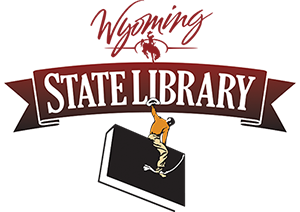Reposted from Library Research Service
When your organization designs a program, service or experience, it’s helpful to think intentionally. What do you hope happens? How would you know if it did? Identifying outcomes is an important first step in planning and evaluating a program, service or experience. What do you need to do after you’ve identified outcomes? It’s helpful to have a model to guide you through your questions, what you hope will happen, how to best collect data, and how it all connects.
There are different types of guides for this process in the evaluation world. The logic model is the one most frequently used in nonprofits and libraries. The key to this process, no matter the model, is to think carefully about the outcomes you have specified, how those outcomes will be achieved, and how success will be measured.
The logic model outlines each component of a program, service, or experience. This article will discuss each component of the logic model using storytime programming as an example, which is shown below. Keep in mind that terminology and some of the components vary in different versions of the logic model, so what is shared here is not the definitive, one and only way to create a logic model. It’s one example.

Inputs
Inputs are the resources that go into making programs, services, and experiences possible. Almost anything we do in libraries requires staff time, funding or supplies. Staff training or background research could also be inputs.
Activities
Activities include the events, services, or experiences that you hope will achieve the outcome. One of the most important steps of this process is making sure the activities could realistically lead to the outcome. For example, in this logic model the outcome is “Caregivers and children learn early literacy skills.” What activities would make it possible for this outcome to happen? The storytime would need to include instruction on early literacy skills for children and parents to be able to learn them. Logical, right?
Outputs
Outputs are the concrete results of the activities. They are usually things we can count, like the number of attendees at a storytime or circulation statistics.
Outcomes
Outcomes are how the participants are affected by their participation. Does something change for them? Do they know, believe or can they do something differently from before they participated? Many logic models distinguish between short-term, medium-term and long-term outcomes (also called impacts). In our example, a short-term outcome is the one shown in the diagram: caregivers and children learn early literacy skills. A medium-term outcome would be that caregivers and children enjoy reading together more. A long-term outcome or impact would be that children’s literacy skills improve. The outcomes build on each other over time.
Assumptions & External Factors
The programs, experiences, and services libraries provide exist within the complicated context that is our world. Assumptions and external factors are a place to capture some of that context. Assumptions are just that — the underlying ideas and values that come with us wherever we go. How do we think things work? We often share assumptions as a profession and questioning them can be uncomfortable. It is still important to explicitly discuss our assumptions because the project could go very differently than we planned due to a faulty assumption. External factors are those elements of the world that may play a big role in how the program, experience, or service works in real life. You can think of this as the environment where the project lives. In our case, right now the pandemic has an impact on all our projects.
Conclusion
Using a guide like the logic model can help you identify each component of the process and how it leads to the next step. Looking at everything sequentially helps you ensure that each piece works together to achieve your outcomes.
Further reading
Several sources informed this post. Refer you to them for more information:
- The Division of Extension at the University of Wisconsin-Madison
- Program Performance & Evaluation Office at the Centers for Disease Control
- Identifying the Components of the Logic Model from the Centers for Disease Control
- The Step-by-Step Guide to Evaluation from the W.K. Kellogg Foundation
- The Corporation for National & Community Service
